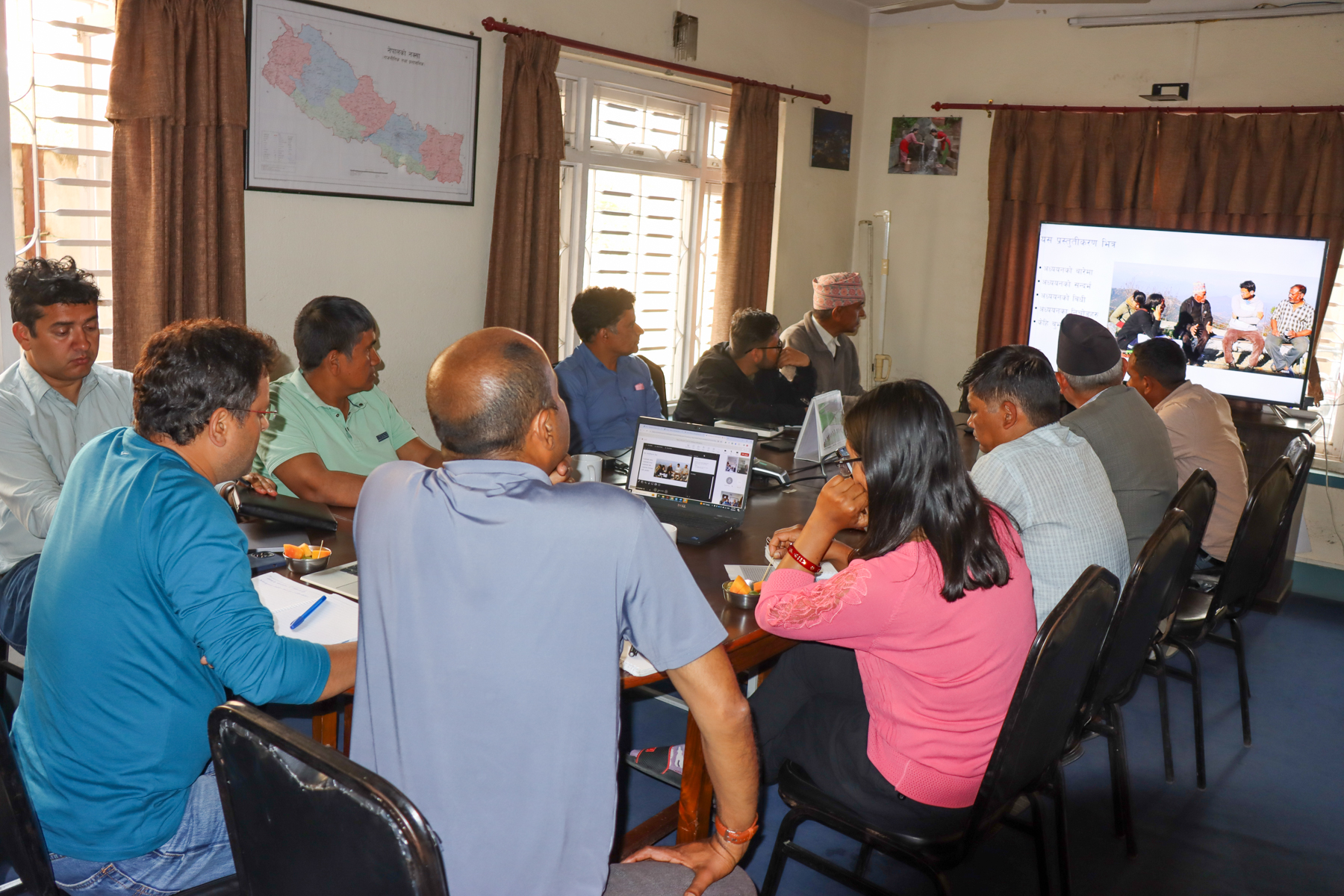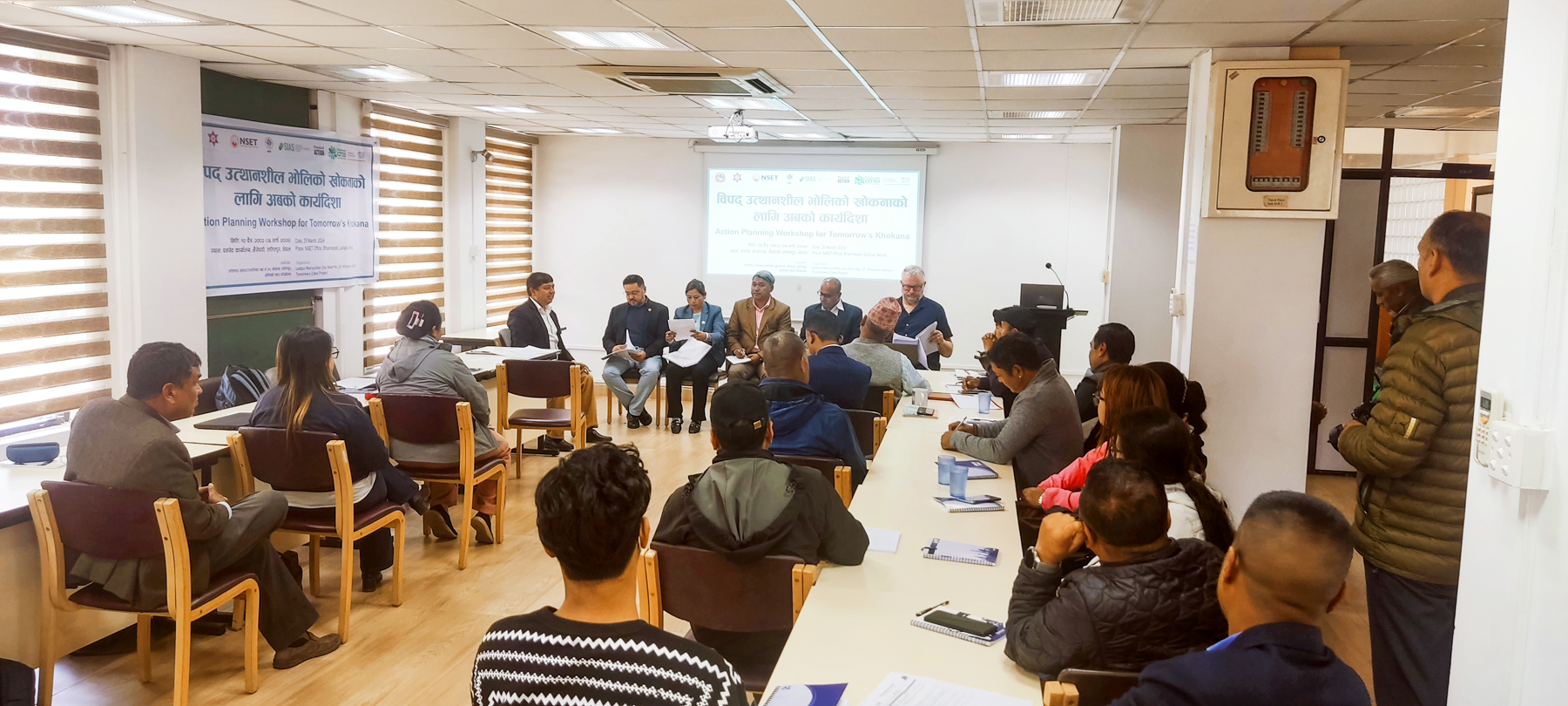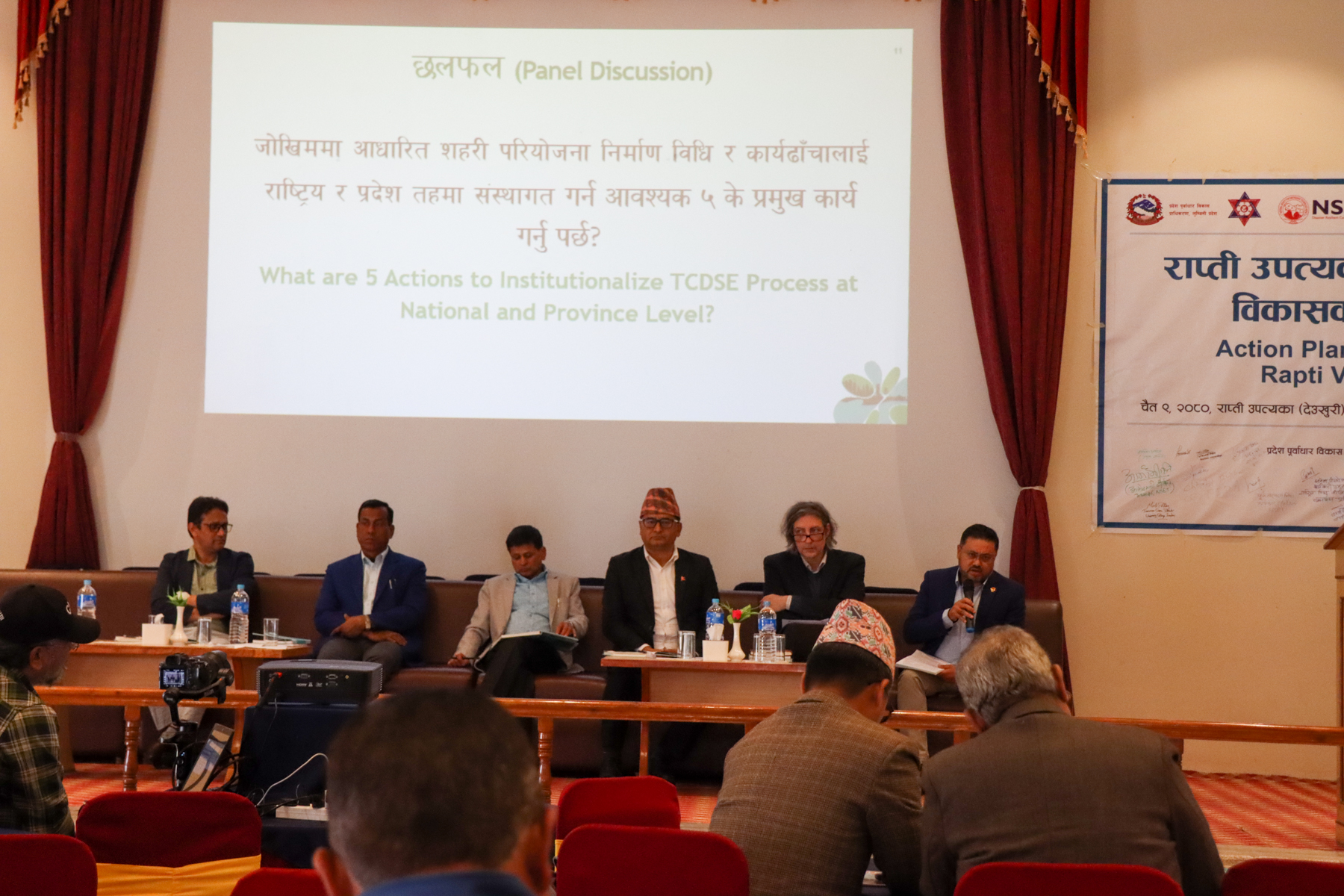Southasia Institute of Advanced Studies (SIAS) in collaboration with Diktel Rupakot Majhuwagadhi Municipality organized the “Diktel Pani Chautari” in Diktel, Khotang on June 11, 2023. A total of 28 participants including the mayor, deputy mayor, drinking water project representatives, municipal officials, community leaders, media persons, FECOFUN representatives, water user committee members and other water users participated in the discussion along with five SIAS researchers. Broadly, the participants of the forum consisted of local elected representatives representing policy makers, SIAS researchers sharing the evidence from research, and water users, project officials and related stakeholders managing and facing the water related issues. The aim of the water forum, which brought together a wide range of stakeholders, was to share the key findings and insights of 6 years of SIAS research and engagement on issues of water management in Diktel and further discuss with the key stakeholders. The sharing and discussion of the forum centered around sustainably managing the water sources, ensuring equitable and inclusive water distribution and participatory water governance. A short video on Diktel’s water story was also showed in the event. The event was chaired by Tirtharaj Bhattarai, Mayor of Diktel Rupakot Majhuwagadhi Municipality.
The event started with briefing on the objectives of the Pani Chautari event and SIAS long-term engagement on water related research by Kamal Devkota. Then, Gyanu Maskey presented the key insights and findings of the research in the forum. She shared the initiatives of source conservation in the area and highlighted that for sustainably managing the water sources, the water users downstream have a crucial role in water sources conservation upstream. Second, highlighting the issues of inequitable water distribution in Diktel, the message shared was that the drinking water systems need to embrace diversity, promoting large scale water schemes as well as conserving the traditional water sources. In regard to inclusive and participatory water governance, the key message was to ensure not only the representation of the women and marginalised users in the decision-making positions, but also to ensure their meaningful participation.
Followed by the presentation, was an insightful and interactive discussion session moderated by Dr. Dil Khatri. The discussion focused primarily on how to sustainably manage water sources, additional efforts that can be made to ensure equitable distribution of water, and on how an environment that includes all people in water management and access to water can be ensured. Participants expressed concern about the drying of water sources due to a variety of factors, such as the disruption of water sources due to development activities such as haphazard road construction, earthquake, impacts of climate change etc. They emphasized the need to preserve existing water sources and to search for additional sources. Likewise, they expressed concern about water security challenges and potential solutions. Participants emphasized that the lifting water project cannot be a sustainable alternative for fulfilling the water demand. In addition, all participants agreed that the recharge ponds will help in water retention. However, they are seeking expert advice in constructing recharge ponds with understanding of recharge science. They also emphasized that it is important for each individual to make an effort to use water wisely and be mindful of not wasting water.
Towards the end of the discussion session, Dr. Govinda Poudel from SIAS summarized the discussed points. He highlighted the lack of coordination among the federal, provincial and local government in budget allocation and policy making processes. Likewise, he summarized that the drying of water sources has several contributing factors. He further highlighted about various water conservation techniques discussed such as protection of water sources, collection of rain water, construction of the recharge ponds to sustainable manage water sources. Likewise, he reiterated every individual’s role in effective use of water including reusing and recycling water.
In the closing remarks, Mayor of Diktel emphasized the local government’s initiatives to safeguard drinking water and pointed out the importance of prioritizing the adoption of sustainable water management practices. He also shared that the municipality plans to invest in rainwater collection and construction of the recharge ponds. He concluded by pointing out the importance of longer-term collaboration with research organizations such as SIAS for evidence-based research results that are relevant to the policy-making process and understanding of the problems and potential solutions.




